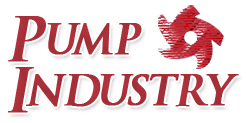It is not without reason that the Federal Environment Agency awards top marks for drinking water quality in Germany.
“It is therefore all the more important to maintain this high level of quality in the future and not to slow down the performance of our members now,” emphasizes Dr. Laura Dorfer. “However, our members are currently struggling with massive national and European regulations. These are not coordinated with each other and in some cases even contradict each other. This applies in particular to the regulation of lead and the different definition of limit values. Against this backdrop, manufacturers have neither planning nor investment security, especially with regard to material changes.”
“We urgently need a harmonized drinking water regulation in Europe,” says Elisa Sasserath-Kentsch, Deputy Chairwoman of VDMA Building Valves and Member of the Management Board of Hans Sasserath GmbH & Co. KG. “We are therefore calling for rules that apply equally to everyone and compliance with which is also monitored as part of European market surveillance. This is the only way we can maintain and strengthen the competitiveness of our industry, promote important innovations and technologies and continue to ensure the responsible and safe use of water.”
This does not only apply here in Germany. “German manufacturers of water technology are aware of the global challenges of water supply. They meet them with tailor-made products that consistently pursue the goal of responsible use of the valuable resource of water,” emphasizes Dr. Dorfer. “The industry is already providing solutions today for the challenges of tomorrow.”
Visitors to IFAT Munich 2024, the world’s most important exhibition for water and wastewater management, saw intelligent water filter technology, automatic leakage protection systems and fittings that are designed to save water and ensure its safe use.
Water-efficient valves save large quantities of drinking water in buildings. Thanks to water management systems, hygiene requirements and the desire to save water are no longer a contradiction in terms. “Another factor that influences the ecological balance is water hardness,” explains Elisa Sasserath-Kentsch. “Limescale deposits in the hot water system and circulation system lead to higher water and energy consumption. With our innovative water treatment products, our industry is also contributing to sustainability in buildings against this background.”
Source: VDMA e. V.



